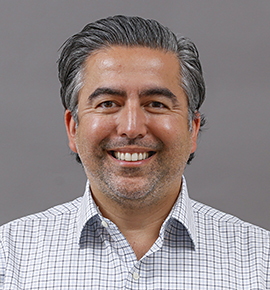Ask Our Expert: What to Know About Allergies

There’s nothing like springtime in New York City. The days, longer, the trees, greener; the parks and gardens are practically calling our name. But as the earth renews itself, our immune systems can sometimes revolt. For many, that crisp, fresh breeze on your Sunday afternoon walk also ushers in sniffles, watery eyes, and a run to the drugstore.
To learn more about spring allergies, the most notorious of the seasonal allergies, we spoke to Dr. David Erstein, a specialist in allergy and immunology at NYC Health + Hospitals/Lincoln.
Q: Let’s start simple: What are seasonal allergies?
Seasonal allergies, also known as hay fever or allergic rhinitis, are caused by your immune system overreacting to allergens in the environment, most commonly pollen. These allergies usually flare up during certain times of the year when specific plants release pollen into the air. The typical culprits include trees, grasses and weeds. Symptoms can include sneezing, nasal congestion, runny nose, itchy eyes, and throat irritation.
Q: Some people complain about allergies throughout the year. How long does allergy season last, or, does each season come with its different set of allergens?
Allergy “season” really depends on what you’re allergic to. Early spring is typically associated with tree pollen, late spring and summer brings grass pollen, and fall is when weeds, especially ragweed, become a problem. In warmer climates, pollen seasons can start earlier and last longer. And, for some people, allergies aren’t seasonal at all—indoor allergens like dust mites, mold, or pet dander can cause symptoms year-round.
Q: Can you develop seasonal allergies as an adult? And are they genetic? Why do some of us have to suffer and others don’t?
Yes, it’s entirely possible to develop allergies as an adult, even if you’ve never had them before. Allergies tend to have a genetic component, meaning, if one or both of your parents have allergies, you’re more likely to develop them too. However, genetics isn’t the whole story. Environmental factors, changes in where you live, or shifts in your immune system over time can potentially all play a role in developing allergies.
Q: I was told by an allergist that seasonal allergies are more prevalent in the United States compared to other countries. Is that true?
Allergy prevalence can vary by country, and the United States does have a relatively high rate of allergic diseases. Urbanization, air pollution, lifestyle factors, and even how we’re exposed to microbes early in life can influence our immune systems. But it’s also possible we’re better at recognizing and diagnosing allergies here in the United States, so they get reported more often.
Q: Headlines can be misleading, but more and more indicate that allergy season is getting “worse.” What does that mean, and what role, if any, does climate change play?
This is one headline that’s actually backed by some science. It is believed that climate change has led to longer growing seasons and higher pollen counts. Warmer temperatures and increased carbon dioxide levels help plants produce more pollen, and for a longer stretch of the year. Unfortunately, that means more intense and prolonged allergy seasons for many people and busier clinics for us Allergists!
Q: Is there a way to prepare for seasonal allergies, or a way to reduce your exposure?
If you know your allergy season is coming, start taking medications like antihistamines or nasal sprays a couple of weeks before symptoms usually begin—it’s often easier to prevent symptoms than to treat them once they’re in full-swing. Try to limit time outdoors on high-pollen days and in the early morning when pollen counts are highest. Keep windows closed, use air purifiers, and shower after being outside to wash off pollen can also be helpful.
Q: I see ads for Flonase everywhere, but one colleague swears by Claritin, and the other, Zyrtec. Is one medication better than another?
Different medications work differently for different people. Flonase (a steroid nasal spray) treats inflammation and is often considered a first line single treatment for nasal allergy symptoms.
Claritin and Zyrtec are antihistamines, which help block the allergic response. Zyrtec tends to be a bit stronger of the two but can make some people drowsy.
Often, a combination approach works best, but it’s worth talking with your doctor or Allergist about what may work best for you.
Q: Is it allergies, or are you coming down with a cold: Do allergies often get mistaken for respiratory illness? How can you tell the difference?
It’s a common confusion. Both can cause runny nose, congestion, and sneezing. But allergies don’t cause fever, and they tend to itch—itchy eyes, nose, and throat are classic signs of allergies. Colds usually come with fatigue, body aches, and symptoms that improve after a few days. Allergy symptoms can last for weeks or even months, depending on exposure.
Q: Finally, do you have seasonal allergies yourself? If so, what do you do for relief?
Yes, but mine are thankfully very mild. I underwent Allergy Immunotherapy as a young adult, which has made spring and fall seasons much more enjoyable now.
To Make An Appointment
Call 1-844-NYC-4NYC
to make an appointment with an NYC Health + Hospitals provider today.
